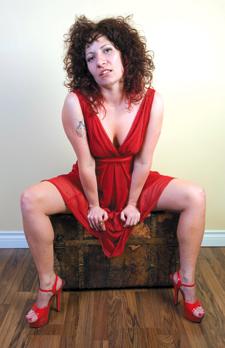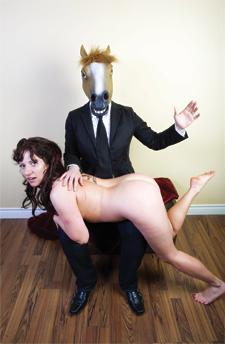“I frequently credit poetry for saving my life,” says Amber Dawn, queer author, activist and program director for the Vancouver Queer Film Festival.
“This may seem like an exaggerated claim, but my life really did take a turn for the better when I found a voice through creative writing,” she says.
“When I enrolled in my first poetry class at UBC, I was living in an SRO [single-room-occupancy hotel] at Carrall and Hastings and working in the sex trade. In many ways, writing was central to building self-respect and making safer choices. Writing my own story allowed me to see how vulnerable my story and I were.”
“And being skilled in written communication allowed me to better advocate for myself as I was exiting the sex trade,” she adds.
Committed to helping other women in similar situations, Amber Dawn created a reading series called Thrilliterate, which brings together queer authors to raise money for literacy and learning program at WISH, a centre for female survival sex workers in Vancouver.
“The WISH literacy program really spoke to me,” says Amber Dawn. “Through this program, women learn computer skills, creative writing and they tell their stories. The very same steps I took as a young woman to empower myself.
“And so I called upon other local queer authors to join me in an ongoing reading series that would raise funds for the WISH literacy program.”
Dawn’s been marrying sex with literature for years. She’s the co-editor of a collection of erotica written by femmes — remember With a Rough Tongue? — and a collection of darker stories, Fist of the Spider Woman: Tales of Fear and Queer Desire.
Now she’s back with a novel, a feat of subversive magical realism called Sub Rosa. It follows a teenage runaway known only as Little as she slips down the rabbit hole and into a surreal, urban otherworld.
Dawn’s experiences with Thrilliterate are typical of her triple threat of sex-lit-activism. She is a co-founder of the Odd Ball party, a response to Vancouver’s increasingly homogenized and segregated Pride parties, launched to popular acclaim in 2005.
Dawn also organized For the Boys (and For the Girls), events that support trans folks in need. She organized the first For the Boys in 2003 after a Vancouver trans group lost its meeting space and couldn’t afford a new one.
When it comes to literature and sexuality, Dawn’s aha moment came when she found a picture of herself on the internet. The explicit shot didn’t concern her as much as the caption below it that read, “I’m a dumb slut. I want to be filled with your cum.”
“This,” she admits in With a Rough Tongue, “is the moment I realized the cause of all my uneasiness with the majority of pornography: it does not reflect who I am.”
When asked how she defines herself, the identity of femme rates high in her self-description.
“Through my life I’ve totally been at odds with my gender, being a woman, because my experience has been really tough,” she says. “Sometimes being a woman has been an out-and-out curse. It feels more empowering to say ‘I’m femme’ because I chose it for myself. I consider myself a sort of femme aggressive; I don’t handle that lightly or delicately.”
—with files from Denise Sheppard


 Why you can trust Xtra
Why you can trust Xtra


